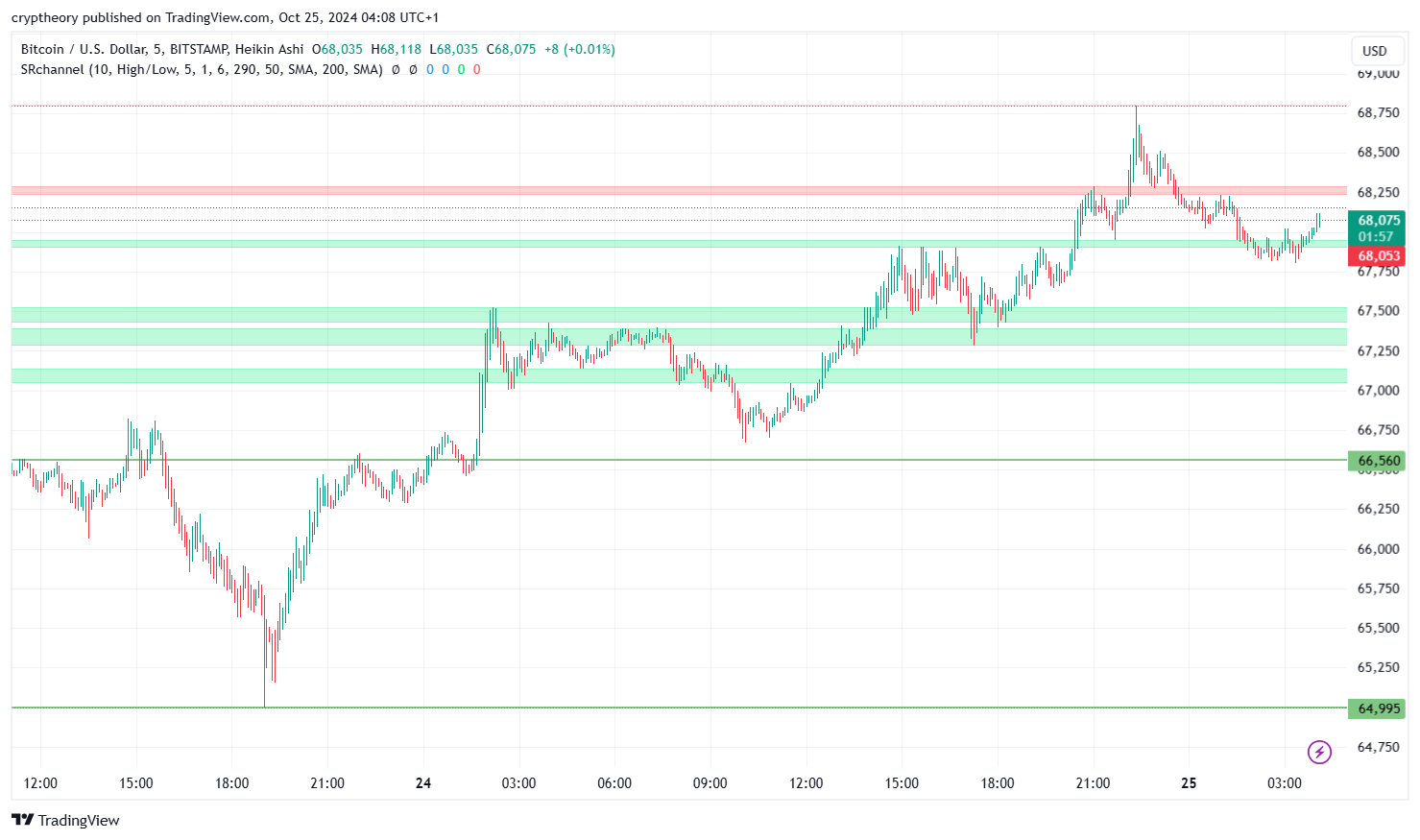Bitcoin’s volatility makes it ‘almost uninvestable’ according to a Barclay’s private bank chief markets strategist.
Gerald Moser added that the leading cryptocurrency is also a poor portfolio diversifier.
Moser claimed that retail investors had driven much of the recent price rally. The sentiment runs contrary to the belief that institutional and corporate buying sent bitcoin to new highs.
Research pieces I read usually go along the following lines:
"Outlook has been improving, HOWEVER, there are still plenty of reasons for concern, and without significant follow throughs the current recovery may be temporary "
— Alex Krüger (@krugermacro) January 20, 2021
Moser: Bitcoin More Like a ‘Bubble’ than a Long-Term Investment
For Gerald Moser, bitcoin’s erratic price history is likely to put ‘large investors’ off the digital asset. Writing for International Investment, the Barclays private bank strategist added that it is impossible to forecast expected BTC returns.
Bitcoin’s limited issuance rate and changes in supply and demand result in dramatic price swings. Just days after rising to almost $42,000, for example, the BTC price plunged as low as $31,700 before returning to near all-time highs.
As Moser himself put it:
“With spikes in volatility that are multiples of that typically experienced by risk assets such as equities or oil, many would probably throw the cryptocurrency out of any portfolio in a typical mean-variance optimisation.”
Additionally, Moser rejected the notion that bitcoin could serve as a safe-haven asset. Apparently, BTC fails when diversification is most needed.
Moser argues that BTC has performed worse than global equities over the last three major corrections. The most recent was in March 2020, when equities plunged 34% compared to bitcoin’s 38%.
Elsewhere in his assessment, Moser mentions bitcoin’s energy demands, how easy it is to lose bitcoin, and the frauds and thefts from exchange platforms. Finally, he added that blockchain technology hasn’t yet lived up to its hype.
Is Retail or Institutional Money Driving the BTC Price?
Moser also refutes the notion that institutional money is responsible for bitcoin’s recent price rally:
“The performance of the cryptocurrency has been mostly driven by retail investors joining a seemingly unsustainable rally rather than institutional money investing on a long-term basis.”
Yet, there is clear evidence of increasing institutional and corporate interest in bitcoin. Last year saw several high-profile names accumulate big positions in bitcoin.
In August 2020, business analytics firm MicroStrategy announced its first bitcoin buys. By the end of the year, the publicly-listed company had invested more than $1 billion in BTC.
Following MicroStrategy came similar treasury reserve allocations from the likes of Square and NexTech AR. Additionally, financial institutions, like 170-year-old life insurers MassMutual and UK asset manager Ruffer, have also made significant bitcoin purchases.
Moser acknowledged that leading financial houses were taking a greater interest. However, he concluded that the market volatility suggested institutional involvement was limited.
Like Moser, investment director at Aberdeen Standard Investments, Adam Grimsley also believes that the institutional investor narrative is overblown. Calling the notion that institutions are driving the price ‘a bit delusional.’
Bitcoin’s momentous rise is undeniable, though. As mentioned in Alex Krüger’s tweet above, the real question may simply be: are institutions really just looking to buy your coins at lower levels?
The post Bitcoin a ‘Poor Diversifier.’ Does Barclays Want to Buy Your Coins? appeared first on BeInCrypto.






















